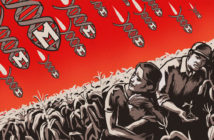For as long as humans have been growing food, farmers have saved seeds from their harvest to sow the following year. But Monsanto and other big seed companies have changed the rules of the game. They have successfully argued that they spend millions of dollars developing new crop varieties and that these products should be treated as proprietary inventions with full patent protection. Just as one can’t legally reproduce a CD or DVD, farmers are now prohibited from copying the GM seeds that they purchase from companies like Monsanto, Bayer, Dow and Syngenta.
In one sense, these corporations no longer sell seeds – they lease them, requiring farmers to renew their lease with every subsequent growing season. Monsanto itself compares its GM seeds to rental cars. When you are finished using them, rights revert to the owner of the “intellectual property” contained within the seed.
Some farmers have saved their seeds anyway (called “brown bagging”), in some cases to save money, in others because they don’t like the big companies telling them how to farm. Monsanto has responded with an all-out effort to track down the brown baggers and prosecute them as an example to others who might be tempted to violate its patent. By aggressively enforcing its “no replant policy,” Monsanto has initiated a permanent low-grade war against farmers. At the time of this writing, the company had not responded to emailed questions about its seed saving policies.
“I don’t know of [another]company that chooses to sue its own customer base,” Joseph Mendelson of the Center for Food Safety told Vanity Fair Magazine. “It’s a very bizarre business strategy.”



